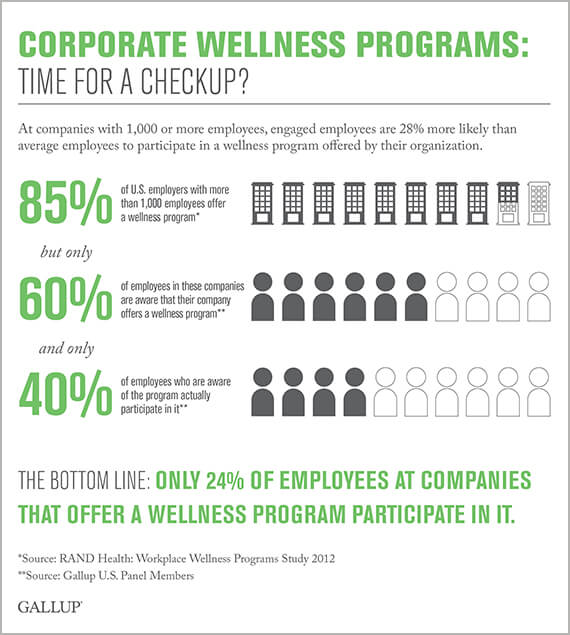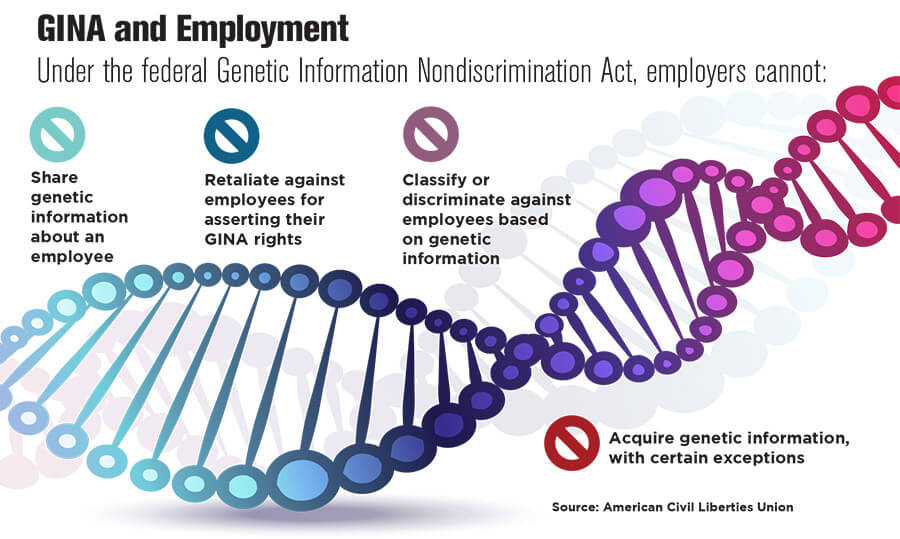Why Do Employers Want to Genetically Test Employees Anyway?
Workplace wellness programs, which offer workers a variety of incentives to monitor and improve their health, have become increasingly popular with companies. Under the Affordable Care Act, employers may discount health insurance premiums by up to 30 percent — and in some cases 50 percent — for employees who voluntarily participate in a wellness program where they’re required to meet certain health targets.
Under Existing Law Employee Genetic Testing Must Be Voluntary
Currently, genetic testing as part of wellness programs is allowed under the Americans with Disabilities Act, the Public Health Service Act and an Equal Employment Opportunity Commission ruling. Genetic testing is allowed as long as it is part of a voluntary wellness program and reasonably promotes health or prevents disease.
At this time, employers cannot penalize employees who do not provide genetic test results. Existing federal laws also protect genetic privacy and nondiscrimination. The 2008 Genetic Information Nondiscrimination Act (GINA) prohibits discrimination by health insurers and employers based on people’s genetic information. That is, employers and insurers cannot charge employees more for health care or deny them insurance based upon genetic tests. There is an exception in GINA that allows for employees to provide genetic information as part of voluntary wellness programs. However, employee participation must be entirely voluntary, with no incentives for providing the data or penalties for not providing it.
Is Congress Trying to Pass A Law That Will Allow Employers to Penalize Employees Who Refuse Genetic Testing?
A bill, Preserving Employee Wellness Programs Act, HR 1313, was recently passed by the House Committee on Education and the Workforce. It passed on a party-line vote, with all 22 Republicans supporting it and all 17 Democrats opposed.
HR 1313 would allow employers to impose penalties of up to 30% of the total cost of the employee’s health insurance on employees who choose not to provide genetic test data. Opponents to the bill say the difference in premiums between those who agree to be tested and those who don’t would amount to a penalty.
The sponsor of the bill, Rep. Virginia Foxx (R-NC), argues that discrimination based on genetic information will remain illegal under federal law and that workplace wellness programs would remain 100 percent voluntary.
For now, HR 1313 is still in Committee and has not been scheduled for a full vote in the House of Representatives.
Would you disclose your genetic test results to your employer in exchange for a discount on your employer health insurance plan premiums? Would you feel confident that the information would be kept confidential?












No, I would not. As a matter of fact, when my employer notified me that I would pay more for my health insurance if I didn’t enroll in their outcomes-based, biometric screening, life intruding ‘wellness program’ in 2017, I dumped health insurance entirely so I didn’t have to sign away my privacy OR pay a penalty.
This has effectively taken away $6000 annually from the health insurance industry.
More people are choosing to leave the heavy handed industry as well. I am not alone. My personal estimation is that health insurance corporations will be $250 million less wealthy by the end of 2017.
I am widely broadcasting my revolutionary action so other employees won’t feel they are alone in taking the risks for a constitutionalist agenda.
Forward, March!